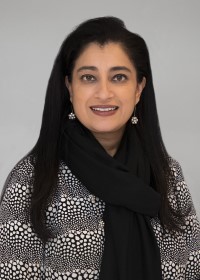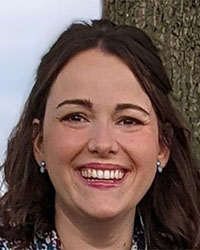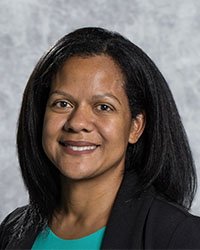AHRQ Views: Blog posts from AHRQ leaders
Working Together to Tackle Inequities—Centering the Voices of Women
MAY
13
2024

The theme for this year's National Women's Health Week—Empowering Women, Cultivating Health: Celebrating Voices, Wellness, and Resilience—aligns with AHRQ's ongoing efforts to address the healthcare needs of all women.
The message is clear: women who are equipped with up-to-date information and empowered to speak about their health needs and concerns are more likely to live healthy lives. It is essential for women to engage in healthy practices, access preventive care, and share their health experiences to inspire others.
AHRQ's commitment to funding the implementation and dissemination of patient-centered research remains steadfast. We strive to incorporate women's experiences and needs as key to celebrating their voices—an essential part of ensuring high-quality, equitable care. Centering women, mothers, and all patients within their healthcare journey as co-creators of health and well-being has been and will continue to be a central theme in AHRQ's work.
A recent AHRQ-funded evidence report explored how the healthcare community can effectively deliver respectful maternity care, a promising approach for improving disparities in maternal experiences in pregnancy and postpartum care.
This report, cited in the White House Blueprint for Addressing the Maternal Health Crisis, will help guide updates to the AHRQ Toolkit for Improving Perinatal Safety, which is used by hospitals, state partners, and health systems, for improving the quality and safety of labor. Embedding training on respectful maternity care practices in the toolkit sharpens the focus on reducing racial/ethnic disparities in harm and mistreatment while giving voice to all women in their care delivery journey.

In addition, last week the Agency issued a new Special Emphasis Notice signaling AHRQ's interest in funding research to improve care delivery, access, quality, equity, and health outcomes for older adults. Among people 65 and older, women disproportionately experience illness, multiple chronic conditions, disability, poverty, and barriers in access to care. Thus, the notice emphasizes AHRQ's strong interest in supporting research directly targeting healthcare inequities among older women.
These efforts add to the following AHRQ initiatives and publications that have helped to inform and advance better healthcare for women:
- AHRQ's EvidenceNow: Managing Urinary Incontinence (UI) initiative funded five institutions nationwide to disseminate and implement evidence-based strategies in primary care for nonsurgical treatment of UI in women. A collection of tools and resources to manage UI is available via the initiative.
AHRQ’s Patient Safety Network (PSNet) provides news and resources on maternal safety and perinatal mental health, innovations and toolkits, and opportunities for free continuing medical education and trainings. Featured publications include a recently updated Maternal Safety primer plus perspectives on Health Equity and Maternal Health and Maternal Safety and Perinatal Mental Health.

Kisha I. Coa, Ph.D., M.P.H. - A 2023 clinical practice guideline issued by the American College of Obstetricians and Gynecologists (ACOG) was based on an AHRQ report, Maternal, Fetal, and Child Outcomes of Mental Health Treatments in Women: A Systematic Review of Perinatal Pharmacologic Interventions. ACOG developed 14 graded recommendations on management of perinatal depression, anxiety, bipolar disorders, and acute postpartum psychosis, as well as health equity.
- Two recent recommendations by the AHRQ-supported U.S. Preventive Services Task Force—one on screening for hypertensive disorders of pregnancy, another on screening for breast cancer—are important tools to help women and their clinicians detect serious illness in the early stages.
AHRQ will continue its work with both public and private partners to improve the health and healthcare of all women. During Women's Health Week, we join all who strive for a day when all voices are heard, all inequities are eliminated, and all women are empowered to achieve their best possible health.
Dr. Mistry is the deputy director for AHRQ’s Office of Extramural Research, Education, and Priority Populations; Emily Chew is the agency’s senior advisor for women’s health and gender research; Dr. Coa is the agency’s division director for priority populations..
Get more AHRQ news, sign up for AHRQ news via email and follow AHRQ on Twitter, LinkedIn, Facebook, and YouTube.



